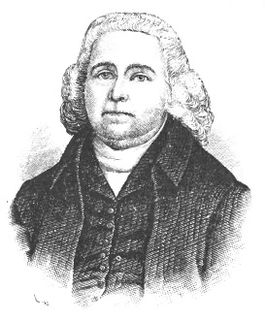A Quote by Thomas Paine
Government ought to be as much open to improvement as anything which appertains to man, instead of which it has been monopolized from age to age, by the most ignorant and vicious of the human race. Need we any other proof of their wretched management, than the excess of debts and taxes with which every nation groans, and the quarrels into which they have precipitated the world?"
Related Quotes
Besides the advantage of being armed, which the Americans possess over the people of almost every other nation, the existence of subordinate governments, to which the people are attached, and by which the militia officers are appointed, forms a barrier against the enterprises of ambition, more insurmountable than any which a simple government of any form can admit of.
Every age and every nation has certain characteristic vices, which prevail almost universally, which scarcely any person scruples to avow, and which even rigid moralists but faintly censure. Succeeding generations change the fashion of their morals with the fashion of their hats and their coaches; take some other kind of wickedness under their patronage, and wonder at the depravity of their ancestors.
If we once admit that our life is here for the purpose of race-improvement, then we question any religion which does not improve the race, or the main force of which evaporates, as it were, directing our best efforts toward the sky.... Improvement in the human race is not accomplished by extracting any number of souls and placing them in heaven, or elsewhere. It must be established on earth, either through achievement in social service, or through better children.
Reason cannot desire for man any condition other than that in which not only every individual enjoys the most absolute, unbounded freedom to develop himself out of himself, in true individuality, but in which physical nature, as well, need receive no other shaping by human hands than that which is given to her voluntarily by each individual, according to the measure of his wants and his inclinations, restricted only by the limits of his energy and his rights.
We’re not living in an age of no hope. We are living in the age of choice, which is much scarier. It means that what we do every day matters, which is always a bummer for humans. But it’s a great thing and it’s inspirational and we need to remember that. We have a long way to go and not a long time to get there.
Willful sterility is, from the standpoint of the nation, from the standpoint of the human race, the one sin for which the penalty is national death, race death; a sin for which there is no atonement. No man, no woman, can shirk the primary duties of life, whether for love of ease and pleasure, or for any other cause, and retain his or her self-respect.
Every old man complains of the growing depravity of the world, of the petulance and insolence of the rising generation. He recounts the decency and regularity of former times, and celebrates the discipline and sobriety of the age in which his youth was passed; a happy age which is now no more to be expected, since confusion has broken in upon the world, and thrown down all the boundaries of civility and reverence.
Of all the animosities which have existed among mankind, those which are caused by a difference of sentiments in religion appear to be the most inveterate and distressing, and ought to be deprecated. I was in hopes that the enlightened and liberal policy, which has marked the present age, would at least have reconciled Christians of every denomination so far that we should never again see the religious disputes carried to such a pitch as to endanger the peace of society.
Whenever the powers of government are placed in any hands other than those of the community, whether those of one man, of a few, or of several, those principles of human nature which imply that government is at all necessary, imply that those persons will make use of them to defeat the very end for which government exists.
It is usual to speak in a playfully apologetic tone about one's adult enjoyment of what are called 'children's books.' I think the convention a silly one. No book is really worth reading at the age of ten which is not equally (and often far more) worth reading at the age of fifty-except, of course, books of information. The only imaginative works we ought to grow out of are those which it would have been better not to have read at all. A mature palate will probably not much care for crème de menthe: but it ought still to enjoy bread and butter and honey.





































